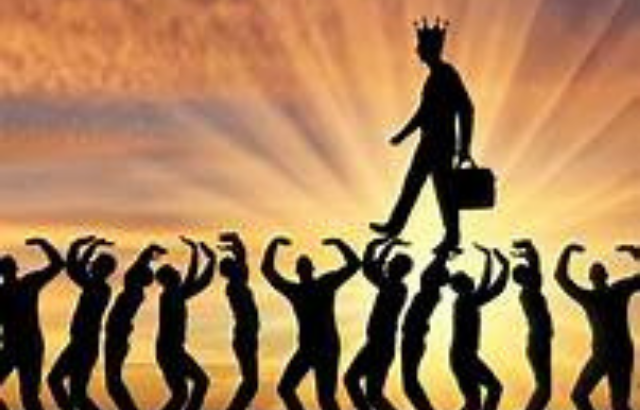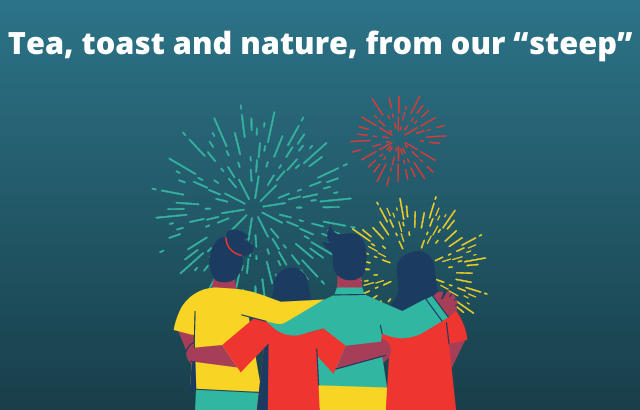Selfish character - an effective idea?
You may feel uncomfortable about your future. Fate holds the store. And what will happen to you after you die if you have a somewhat selfish character?
On the other hand, people may think that being self-centered is a good thing. They ask, what is so wrong about loving yourself? After all, don't we have to be number one to survive and succeed? Yes, I would say that it is better to create our own way and not become a burden to society. Not caring for yourself is of no use to anyone. So, if it is good to worry about yourself, what does it mean to live a selfish life?
According to Richard Whitley (English philosopher and theologian), "a person is said to be selfish not to pursue his own interests, but to neglect his neighbor."
I would suggest that truly selfish people are willing to exploit others for their own pleasure. In their behavior, they are self-serving even if it means being unconscious, dishonest and stingy. Extreme selfishness tends to be sarcastic, obscene, and even corrupt when a person's desires fail.
We can think of the afterlife of those who continue to be selfish. If we actually reap what we sow, what are the negative effects of such actions?
Can any of us help keep the selfish character?
From a mixture of factors, we behave in a certain way. Chances come in the picture as well. So, you may ask, how can we be responsible in the way that we are living our lives? Don't we have all kinds of desires and motives? In fact, it is a common view today that we are all born with a mixture of positive and negative tendencies. In addition to natural kindness, there are virtues as well as selfishness, generosity and greed, as well as evil deeds.
Also, it is generally assumed that there are large amounts of external elements outside of our control that affect us. Social scientists can demonstrate the connection between mental illness and traumatic experiences. Even in the midst of crime and poverty. We need social acceptance from teenagers, we adhere to their social norms, which can be criminal in the eyes of others.
Are external factors responsible for how we live our lives?
This is how I see it. Children Yes, being influenced by all sorts we start in every world. Genetic makeup, family upbringing, community norms and any difficulty, all affect our behavior. So it is true that we have special inherited tendencies and unique life experiences that affect us. As science has proved, both 'nature and nurture' play an important role in human development.
But there is also a spiritual aspect. As we get older I would say we each become our own person. We develop as individuals with our own concerns and priorities, regardless of the circumstances in which we started. We gradually choose our own values and aspirations.
If you want to read the Bangla latest News, click here:
I’m trying to argue that who we each become depends on the response to the world around us. How we respond to challenging experiences. Do we treat set-backs badly or well? Think about failure or get on with things? The reward or resistance of life's temptations that can lead to delusion and suffering? I would say that what comes down to this is that we make our own choices.
Are we responsible for our individual character?
In a similar vein, the criminal justice system assumes that we are liable to the court for obeying or disobeying the law. We are responsible for our behavior because we choose to follow or go against social norms.
This view is also consistent with the philosophy of existence. The main basis of this tradition is the recognition of the reality of internal freedom. It is not always possible to do what we want, such as when we are hardened, oppressed or physically disabled, but we are still free to think and act as we please.
Externally we cannot be free from social barriers in what we do and say. But do we not exercise our inner freedom to think and reason as we please? And do you always want to do it day after day, hour after hour, and a minute after a minute? If so, over time, a pattern will gradually emerge of the way the situation is being reacted to. The underlying attitude toward life is growing. And it forms our distinctive character. I will say it may be selfish or not - but it is our choice. We end up being who we are and what we want most.
Razor Edge
How to finish what we wanted internally 1944 WW. Somerset Maugham is featured in the novel The Razor's Edge.
Acclaimed as a masterpiece, it tells the story of an American pilot named Larry Darrell, who was inspired by the experience of the First World War. Rejecting conventional life and looking for some small meaningful experience allows him to develop internally.
If you want to read the updated English News, click here:
His fiance Isabel Bradley can’t accept his life philosophy and breaks their busyness to return to Chicago. There she married a millionaire who provided her with prosperous family life. But he is in love with Lori. His destiny is that he will never find Larry, who has decided to survive as a common laborer. She is not interested in the rich and glamorous world that Isabel will move into. The other characters in the book ended up getting what they wanted, albeit sadly in some cases.
It is said that 'what we eat is what we eat'. The foods and drinks that we eat on a regular basis make our bodies healthier or unhealthy. Likewise, does our mind become spiritually healthy or unhealthy according to the motives and fantasies we usually enjoy? Do we form the habit of thinking?
According to Swedenborg, throughout life around the world, one slowly builds one's inner character. Each person behaves as they please. Thus, the joy of their own life and the ‘ruler’s love’ are gradually formed. For example, on the one hand, I may be immersed in achieving social status or on the other hand I may be more focused on playing a useful role. As a business person, my emphasis may be more on making money or on the other hand about fair business with suppliers or employees.
If you want to read the Islamic related news, click here:
As regular patterns develop in my life, I basically take what I want to the board. I associate myself with things, fears, hopes and values, etc., and make them my own with the thought of justifying them.
Isn't the idea of selfishness just polarized thinking?
You may wonder, if we choose our attitudes, do they decide if they are selfish? Selfish behavior cannot be due to politeness. In response, I would say yes, a self-interested move may come because we do not fully realize the consequences of what we are doing. How it hurts someone else. Perhaps our friends influenced us unnecessarily to engage in misconduct or petty crime. If we respond well to this issue, it may not turn out to be a set pattern. If we accept the flaws of our ways and the negative impact on others.
In other words, you will see the concept of selfishness as polarized thinking. But I don’t think that’s a good reason not to use the word. Since I would suggest having a degree of selfishness.
If you want to read the Home Based Business News, click here:
The length of one's will depends on how selfish one behaves. Take selfishness lightly, but what we want to do can make them jealous. Apply it more but this feeling may be disliked. Extend it further and we can feel anger or hatred for them for what we ourselves want. And more fully involved in it then we may be harming others to please our own desires.
I would say that a more serious kind of selfishness is due to the strong desire within us that when we stop thinking we realize that our greed is harming others. But we forget and immerse ourselves in the feeling of the moment and don’t stop to reflect.
Serious selfishness
According to this thought structure, the most serious is the selfishness that leads to anxious violence or assassination plans and thus is deliberately acted upon by those of us who imply that we are not doing anything wrong. I guess this more serious level is less common. It is unusual even for an ordinary policeman to face someone who is crooked on average.
Is selfishness just being a moralist?
Do you think that the idea of selfishness is just moralistic? It is true that to say ‘ruler love’ of selfishness means to take a moral position. But I would like to say that the issue of selfishness and selflessness is the core of social customs. This problem seems to be the focus of various social concerns such as environmental policy in the case of pollution, business policy in the case of financial fraud, and the ethics of personal behavior that can solve sexual behavior and infidelity. Do you have to have morality to think like this?
The teaching of Confucianism, a Chinese tradition, is that the evils of selfishness arise because people do not allow their feelings and actions to be in harmony with their own humanity, e.g. Not treating others with their respect and empathy is one of the eight basic principles of getting the same idea we get. Avoiding selfish actions. Indeed, each original religion has a list of moral guidelines that encourage us to follow it.
If you want to read the Fish Advice News, click here:
When I allow myself to be immersed in a selfish customer society. I have moved away from the deep spiritual life with a concern for nature, needy people, etc., and by distorting and disrespecting others I separate myself from the attitude of compassion. By acting foolishly in an exaggerated manner I move away from the spirit of knowledge. In other words, by penetrating deeper into selfishness I create my own negative karma. Or in common parlance, we say that someone 'makes their own hell.'
The 'eightfold path' of Buddhism includes 'right speech', 'right action' and 'right livelihood'. In other words, proper moral conduct. In the Buddhist world, we usually refer to the word 'Naraka' as 'hell' in English. But the Buddhist version differs from the old Christian in that the person was not sent there. When someone reaches the ‘pearl door’ there is no judgment. There is no divine punishment or punishment. Instead, action refers to self-determination.
How to add selfishness?
American actor Chadwick Bosman (who played baseball player Jackie Robinson) put it this way.
"The only difference between a hero and a villain is that the villain chooses to use that power in a way that is selfish and hurts other people."
So, in all these cases, what is calculated is not external action but internal motivation.
Choosing to face one way or another day in and day out can be a lifelong process and a lifelong struggle. Aren't we responsible for the values and behaviors we choose to create ourselves?







0 Comments
If you have any doubts, Please let me know.
Emoji